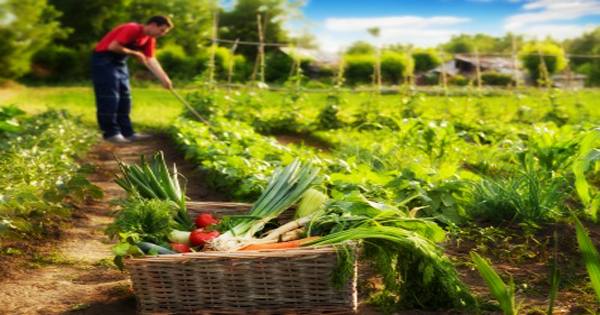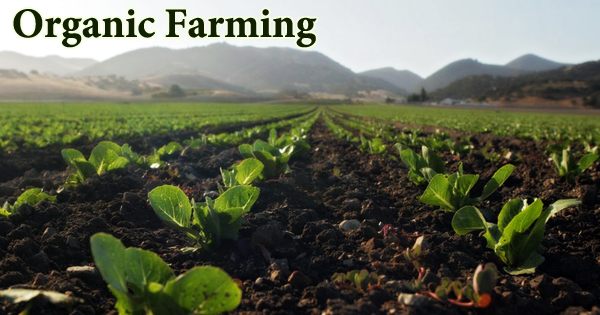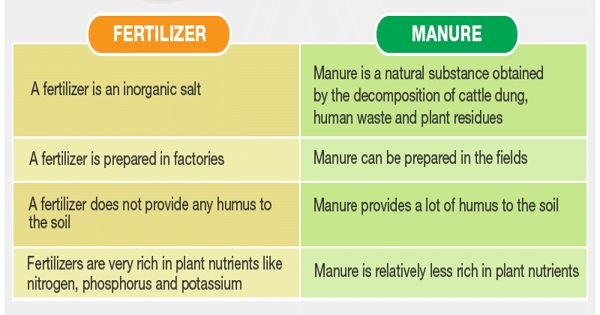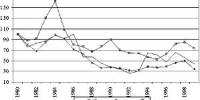Organic farming is a process that entails growing plants and raising animals in a natural environment. To preserve soil fertility and ecological balance while reducing pollution and waste, this approach employs organic resources while avoiding synthetic compounds. Organic farming stresses the use of solely biological resources and bio-fertilizers to provide nutrients for crop growth in a pollution-free and environmentally beneficial manner.
Organic farming is an ancient method of farming that has been used in many nations for centuries to ensure long-term crop production. It began as a response to the harm caused to the environment by the use of chemical pesticides and synthetic fertilizers. At the end of the day, natural cultivating is another arrangement of cultivating or agribusiness that fixes, keeps up, and improves the biological equilibrium. To put it another way, organic farming is a type of farming that entails growing and caring for crops without the use of synthetic fertilizers and pesticides. There are also no genetically modified creatures allowed.
Agricultural production has been described as “organic” for most of human history. The use of huge quantities of artificial chemicals in food production began only in the twentieth century. The Green Revolution is an organic agricultural movement that began in the 1940s in response to the industrialization of agriculture. It depends on environmentally adjusted agrarian standards like harvest pivot, green fertilizer, natural waste, organic vermin control, mineral and rock added substances. Organic farming utilizes pesticides and manures in the event that they are viewed as regular and dodges the utilization of different petrochemical composts and pesticides.

Key Features of Organic Farming –
- Protecting soil quality using organic material and encouraging biological activity
- Indirect provision of crop nutrients using soil microorganisms
- Nitrogen fixation in soils using legumes
- Crop rotation, biological variety, natural predators, organic manures, and appropriate chemical, thermal, and biological intervention are all used to control weeds and pests
- Rearing of livestock, taking care of housing, nutrition, health, rearing, and breeding
- Care for the larger environment and conservation of natural habitats and wildlife
Types of Organic Farming –
Different organic farming methods are used across the country, and they are mostly dependent on the type of soil and weather conditions that exist in different parts of the country. Organic foods must not contain artificial nutritional additions and are frequently manufactured using the fewest feasible artificial techniques and circumstances (e.g., radiation, genetic modification). Pesticides are allowed, unless artificial.
- Pure Organic Farming: Organic farming in its purest form is a type of farming in which farmers only utilize organic manures and pesticides. Pesticides employed in this type of farming, in particular, are chemical-free. Only natural chemicals, such as Neem, are used to make these pesticides. At the end of the day, we can say that unadulterated type of natural cultivating is finished with complete aversion of any sort of inorganic synthetics as manures just as substance pesticides.
- Integrated Organic Farming Systems: To meet ecological requirements and expectations, integrated organic farming include pest management and nutrition management. Farmers use this strategy to grow crops by incorporating all of the necessary elements from natural resources in such a way that the crops retain their full nutritional value. Simultaneously, it assists in the natural prevention of pest harm to the plants.
Advantages of Organic Farming –
Organic farming provides numerous advantages, including the preservation of the soil’s organic makeup. Furthermore, pesticides are constantly destroying Ozone, as are leakage emissions from numerous tractors, industry, and other sources, which organic farming largely avoids.
- Regenerating the degraded soil: Organic farming is the most effective technique to avoid environmental contamination and soil degradation. Organic farming is helping to regenerate the soil in some places of the world where the soil has been deteriorated owing to excessive use of chemical fertilizers by recharging it with required nutrients.
- Maintaining the optimal condition of soil: Because only organic manures are utilized in organic farming, it aids in preserving the best possible soil conditions for increased crop output and quality.
- Economical: There are no additional costs in organic farming because no expensive fertilizers, pesticides, or HYV seeds are necessary for crop planting.
- Nutritional: Organic farming aids the earth in regaining its fertility capacity by supplying various vital nutrients to the soil and assisting the soil in maintaining those nutrients.
- No need to purchase chemical manures: Farmers in organic farming use only natural and organic manures, thus they are not forced to purchase chemical manures, which significantly saves their costs.
- Environment-friendly: Organic farming does not use chemicals or fertilizers, hence it is not harmful to the environment.
Natural cultivating doesn’t utilize noxious synthetic substances, pesticides and weedicides. Studies uncover that an enormous part of the populace benefited from harmful substances utilized in customary horticulture have succumbed to illnesses like malignancy. As natural cultivating maintains a strategic distance from these poisons, it diminishes the ailment and sicknesses because of them.
Disadvantages of Organic Farming –
- Less production: When compared to chemical products, the items obtained by organic farming cost less in the early years. As a result, farmers are having difficulty accommodating large-scale production.
- Higher production costs: Organic farming necessitates more people to maintain the different tasks associated with it, raising crop production expenses.
- Crop’s yield become more expansive: Organic farmers, in compared to conventional farmers, do not get as much output from their farms, hence their produce becomes more expansive.
In business cultivates, the synthetic compounds applied to invade into the dirt and seriously defile it and close by water sources. Vegetation, creatures, and people are totally affected by this wonder. Natural cultivating doesn’t use these cruel synthetic compounds so; the climate stays ensured. Organic farming is required to replenish the soil’s fertility in a natural manner and to provide people with healthy food. Despite the fact that low crop yields may have an impact on farmers, organic farming is vital for people to live a natural existence while maintaining ecological and environmental balance for future generations.
Information Sources:
















